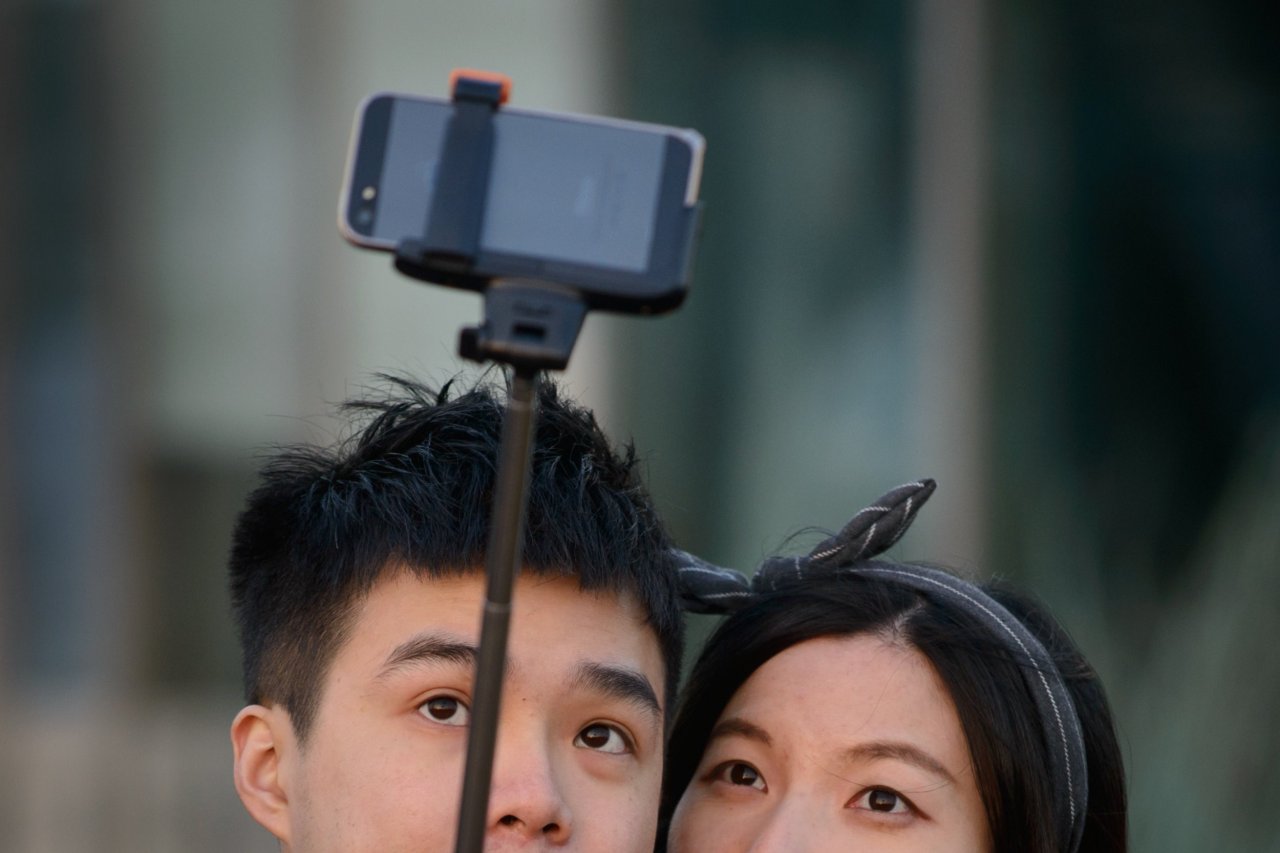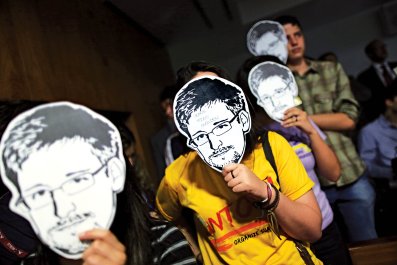The tech industry constantly unleashes thrilling ideas that race through the population like pink eye in a preschool. Some of them, like e-commerce and the Long Tail, have staying power. Others look silly in the rearview mirror—burning millions of dollars to gain "eyeballs" did not continue to be an admirable business strategy after the dot-com bubble burst.
With such perspective, here are eight buzzy tech trends/ideas to watch in 2015, the 20th anniversary of the Internet's big bang: Netscape's IPO.
1. "We're the Uber of…" (insert any profession, from clowns to canola farmers)
No company gets more attention today than Uber. It's changing personal transportation. It's getting in fights and stirring up shit-storms all over the world. It's worth $41 billion. So, of course, every startup team wants to sprinkle a little Uber dust on itself. GlamSquad, which lets users tap an app to get a hairstylist to do a house call, dubbed itself "sort of an Uber for women's haircuts." BloomThat calls itself the Uber for flowers. GreenPal's CEO described his company as an Uber for lawn care.
The problem there is that Uber's greater goal is to eventually be the Uber of every goddamn thing. Much the way Amazon started with books and usurped most of retail, Uber will start with taxis and snort up whatever might seem as if it should be Uberized, whether it is haircuts, flowers, lawn work or clowns. And the company seems mean enough to do it. Watch this space for a lot of Drugstore.com and Pets.com roadkill.
2. All companies are now software companies
In 2011, super-investor Marc Andreessen penned a CEO-rattling op-ed about "why software is eating the world." The thrust was that software is replacing or revolutionizing everything that used to be done with hardware or physical stuff, whether it is TV, medicine or money.
This has proved to be largely true, and CEOs have progressed from denial to conversion. So today we're seeing companies declare that—holy smokes!—they are software companies after all! Or, as Salesforce.com CEO Marc Benioff teased from the stage of his massive convention this fall, "if you weren't a software company before, you are one now."
Even the Girl Scouts succumbed, finally letting its members sell Girl Scout cookies online. If your kid is still hawking Thin Mints door-to-door, she might as well pack up her sash and see if she can get a job as a telephone switchboard operator. This is no fad. Software will inexorably march through one industry after another in 2015 and beyond, unless the North Koreans destroy all of America's computers. Then every company will be a hand-cranked company.
3. Business at the speed of thought
This phrase was the title of Bill Gates's 1999 book, and now seems to be uttered everywhere in business conversation, much like "innovator's dilemma" a decade ago. It's supposed to conjure up super-fast actions in a highly networked age. But this sounds like a really bad idea. Given how scattered our thoughts are, acting instantly on all of them would result in corporate strategy as disjointed as Snooki's Twitter feed. Lord knows, executives could use a little more Dalai Lama and a little less Microsoft philosophy. How 'bout "business at the speed of mindfulness"?
Look for the "speed of thought" phrase to become a cringe-worthy cliché by year's end.
4. Big stinkin' phones will get bigger
Google's Nexus 6 is supposed to be a phone, but it's practically as big as a wok. Put it in your inside jacket pocket and it looks as if you're wearing half a bulletproof vest. Phone sizes are getting bigger faster. "It took five years for the average screen size to get from three inches to four inches, but only two more to get to the current average of five inches," notes Alex Barredo, who analyzed data on 7,000 phone models.
What's driving this? A younger generation, in particular, is using the phone for almost everything that formerly belonged on the laptop: Web searching, Facebooking, movie watching. So it makes sense that they'd want a larger screen, as long as it can awkwardly make a call in an emergency, like when they have to ask their father for money. At least that's been my experience.
But the trend can't continue or phones will soon end up as big as laptops. And then some college-age genius will have an epiphany that it would be really cool to have a connected device you could carry in your shirt pocket, as if that never happened before. Then we'll go back to square one.
5. Cable TV is finished
HBO and CBS dove into streaming in 2014. Every other significant programmer will follow in 2015. Cable companies have overpriced and under-serviced their way to a level of consumer disgust unmatched by almost any industry in history. No one will weep for Comcast.
6. We'll see the first trillion-dollar company
Apple is closing in on a market cap of $700 billion. OK, so it's still $300 billion away from $1 trillion, which is like Apple growing both a Facebook and an Amazon to get there. Still, if stocks keep climbing and Tim Cook doesn't screw up, Apple could pass that milestone soon. U.S. Steel became the first billion-dollar company in 1901. We've been waiting 114 years to get to the next level.
7. Bitcoin is dead; long live Bitcoin
Investing in Bitcoin in 2014 was like using your money as cat litter: $940 for a Bitcoin in January dove to $330 in December. But while the mania for Bitcoin as an investment might be over, most every venture capitalist says that startups in payments and financial technology are their hottest investments right now—and the potential of the technology behind Bitcoin is a big reason. Banks and credit card companies might be heading for the same rough ride that's ahead for the cable companies.
8. Clickbait is dead
What? You mean like arbitrary lists cynically aimed at luring eyeballs? No way.


























